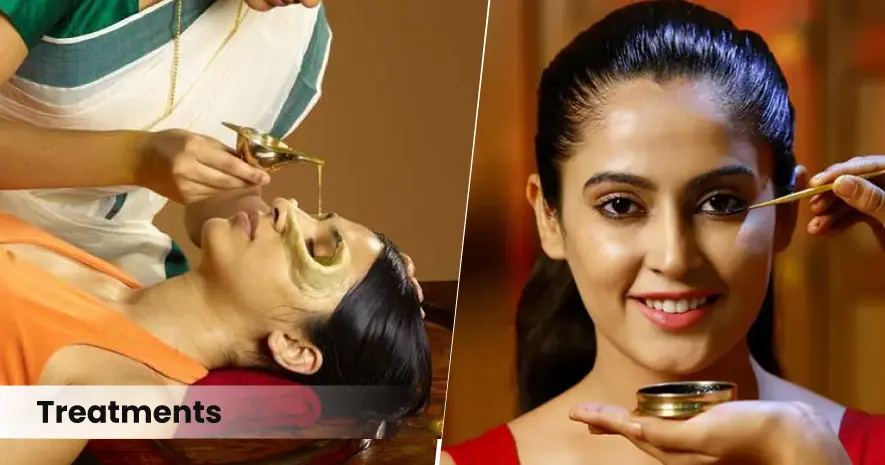
Blurred vision is a condition in which an individual's ability to see objects or people clearly is impaired, leading to unclear or distorted vision. It is crucial to distinguish blurred vision caused by refractive errors, which is the most common cause globally, from other visual disturbances such as visual field defects, double vision, floaters, flashes, and distortions. In Ayurvedic texts, vision is often described using terms like Darshana and Drik, which encompass the visual process governed by the balance of Vata and Pitta doshas. Among these, Alochaka Pitta, a sub-type of Pitta dosha, is said to reside in the eyes and is responsible for visual acuity, color perception, and light sensitivity. An imbalance in these doshas leads to various eye-related disorders, including dry eyes, blurred vision, eye strain, and inflammation. Understanding the causes, symptoms, and management of blurred vision from both modern and Ayurvedic perspectives can help in maintaining healthy eyesight and preventing vision loss.
Causes and Symptoms of Blurred Vision
Blurred vision can arise due to various factors, including refractive errors such as myopia (nearsightedness), hypermetropia (farsightedness), and astigmatism, all of which cause improper focusing of light on the retina. Dry eye syndrome, resulting from insufficient tear production or poor tear quality, can lead to irritation, redness, and blurred vision. Cataracts, which involve clouding of the eye's natural lens, cause progressive visual impairment, while glaucoma, due to increased intraocular pressure, damages the optic nerve, resulting in gradual vision loss. Diabetic retinopathy, a complication of diabetes, affects the retinal blood vessels and leads to visual disturbances. Corneal abrasions, which are small scratches on the cornea often caused by trauma, can result in temporary blurred vision. Eye infections such as conjunctivitis can cause pain, redness, and discharge, contributing to blurred vision. Other causes include vitamin B deficiencies, which can impair nerve function, and neurological conditions like stroke, brain hemorrhage, and migraines, which may cause transient or permanent blurring due to neurological damage. Symptoms of blurred vision include hazy or unclear vision, frequent squinting, seeing halos around lights, glare sensitivity, double vision, eye strain, light sensitivity (photophobia), headaches, and pain during eye movement.
Management of Blurred Vision
In Ayurveda, eye care is a well-developed branch of treatment, with a range of therapies categorized under Netra Kriyakalpas (ocular therapeutic procedures). These therapies aim to cleanse, nourish, and rejuvenate the eyes, promoting optimal visual health. Seka (Herbal Eye Wash) involves pouring medicated liquids over closed eyelids in a continuous stream to improve circulation and facilitate absorption of medicinal properties. Triphala Seka strengthens blood vessels, reduces inflammation, and clears vision. Aschothana (Medicated Eye Drops) includes the instillation of herbal extracts into the eyes to cleanse, reduce strain, and enhance ocular function. Triphala Kashaya Aschothana and Amalaki Swarasa are commonly used to improve vision. Pindi (Herbal Paste Application) involves applying a medicated paste over the eyelids to relieve inflammation and promote healing. Pastes made of dried ginger and rock salt are effective for resolving eye discomfort. Vidalaka (Herbal Eye Pack) consists of applying a medicated paste to the outer eyelid region, excluding the eyelashes, to detoxify and revitalize the eyes. Mukkadi Gulika Vidalaka helps reduce inflammatory eye conditions and enhances vision clarity. Tarpana (Ocular Rejuvenation Therapy) involves retaining medicated ghee over the eyes for a specific duration to nourish the optic nerve and improve vision. Triphala Ghee Tarpana is particularly beneficial for managing refractive errors, cataracts, and glaucoma. Putapaka (Advanced Rejuvenation Therapy) is similar to Tarpana but uses different herbal preparations and durations, helping relieve eye fatigue and restore visual clarity. Anjana (Medicated Eye Liner Application) entails applying medicinal pastes or powders to the lower eyelid to improve vision and treat various eye conditions. A formulation made from Amalaki, Vibhitaki, Haritaki, and Pippali enhances visual acuity and strengthens the optic nerves.

Do’s and Don’ts for Improving Blurred Vision
To maintain clear vision, a healthy diet rich in Vitamin A and C, including carrots, spinach, kale, and oranges, is essential. Proper rest is crucial, as tired eyes can contribute to blurriness. Managing screen time by following the 20-20-20 rule, where every 20 minutes one looks at an object 20 feet away for 20 seconds, helps reduce strain. Regular eye exercises such as palming and focusing techniques can enhance vision. Stress management through yoga, meditation, and deep breathing exercises helps prevent tension-related vision issues. Consuming eye-friendly supplements rich in Omega-3 fatty acids, Bilberry extract, and Vitamin A supports retinal health. Regular eye checkups are necessary for the early detection and prevention of serious eye conditions.
Conclusion
Blurred vision is a common yet significant visual complaint that, if left unaddressed, may lead to long-term complications. Integrating Ayurvedic therapies with modern medical approaches offers a holistic solution for maintaining optimal eye health. By incorporating dietary changes, lifestyle modifications, and specialized Ayurvedic treatments such as Netra Kriyakalpas, individuals can effectively manage and prevent blurred vision. Early diagnosis and intervention play a pivotal role in preserving vision and enhancing overall ocular well-being.
FAQ
1. What causes sudden blurred vision?
Sudden blurred vision can be caused by eye strain, dry eyes, refractive errors, migraines, low blood sugar, stroke, or serious conditions like retinal detachment and glaucoma. If it occurs suddenly and does not improve, seek medical attention immediately.
2. Can stress cause blurred vision?
Yes, stress and anxiety can lead to eye strain, dry eyes, and even temporary vision disturbances due to muscle tension and reduced blood flow to the eyes.
3. Is blurred vision a sign of diabetes?
Yes, diabetes can cause blurred vision due to high blood sugar levels affecting the eye’s lens or leading to diabetic retinopathy, which damages retinal blood vessels.
4. What are Ayurvedic remedies for blurred vision?
Ayurveda recommends therapies like Triphala eye wash, Tarpana (medicated ghee therapy), Anjana (medicated eye liner), and herbal eye drops to improve vision clarity.
6. When should I see a doctor for blurred vision?
Consult an eye specialist if you experience:
-Sudden or persistent blurred vision
-Double vision
-Pain, redness, or sensitivity to light
-Vision loss in one or both eyes
-Flashes of light or floaters
7. What foods are good for eye health?
Foods rich in Vitamin A (carrots, spinach, sweet potatoes), Omega-3 (fish, flaxseeds), and antioxidants (oranges, berries, nuts) support eye health and prevent vision problems.
8. Can screen time cause blurry vision?
Yes, excessive screen time can cause digital eye strain, leading to dryness, fatigue, and blurred vision. Follow the 20-20-20 rule and adjust screen brightness to reduce strain.

November 26, 2025

November 13, 2025

November 09, 2025

October 27, 2025

October 24, 2025

October 18, 2025
We use cookies that are necessary for the smooth operation of the website, to improve our website and to display advertising relevant to you on social media platforms and partner websites. By clicking "Accept all", you agree to the use of cookies for convenience features and statistics and tracking. You can change these settings again at any time. If you do not agree, we will limit ourselves to technically necessary cookies. For more information, please see our privacy policy .